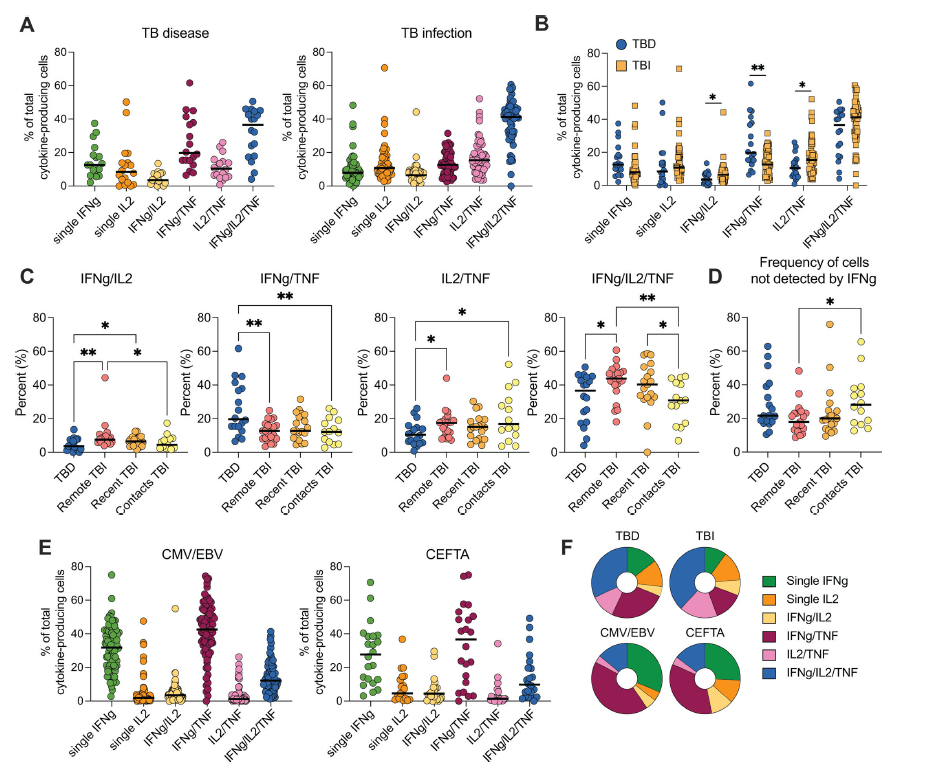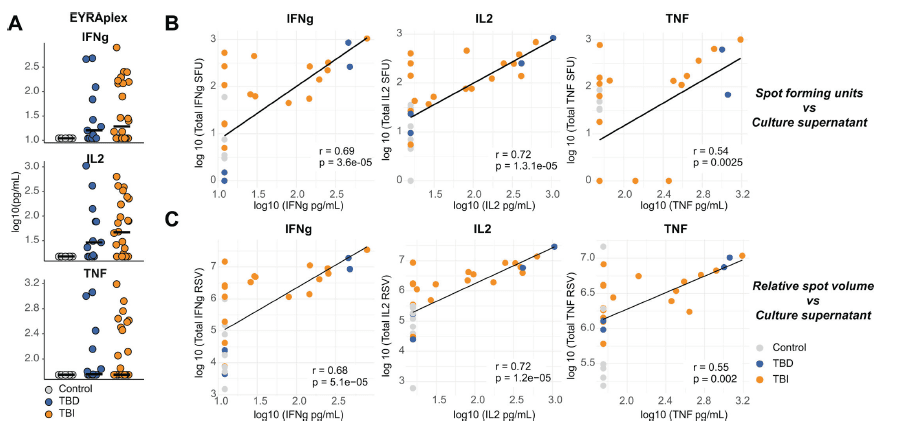
Multiplexing for deeper insights into Tuberculosis research and diagnostics
Published: October 30, 2025
Updated: November 12, 2025
2 minute read
Authored by: Tyler Sandberg
According to the World Health Organization, 1.25 million people died from tuberculosis (TB) in 2023, making it the leading cause of death from a single infectious agent. To make things even worse, the lack of reliable diagnostic tools that can differentiate between latent and active TB remains one of the greatest challenges in infectious disease diagnostics.
In a recent study published in the Journal of Clinical Microbiology, a research team at the Karolinska Institute (Stockholm, Sweden) used Mabtech’s multiplexing platforms to explore how combinations of cytokines reveal different stages of TB infection.
They first compared FluoroSpot to ELISpot and observed strong correlations between Mycobacterium tuberculosis (Mtb)-specific IFN-γ spot-forming units (SFUs) across the two assays. Building on this, the team ran a triple-color FluoroSpot detecting IFN-γ, IL-2, and TNF-α on Mabtech IRIS, demonstrating that triple-secreting T cells provided superior specificity and differentiation compared to traditional IFN-γ-only tests. Distinct cytokine profiles successfully distinguished individuals with active disease from those with latent or recent infection, a feat that standard IGRAs miss.
In parallel, culture supernatants were analyzed using Mabtech EYRA and EYRAplex. The authors found strong positive correlations between IFN-γ, IL-2, and TNF-α relative spot volumes (RSV) and SFUs from FluoroSpot and the corresponding secreted cytokine concentrations detected with EYRAplex across the TB spectrum.
Together, their results showcase how combining single-cell multiplex assays like FluoroSpot with bead-based multiplex assays like EYRAplex provide both functional and quantitative insights into immune responses. We’re proud to be able to offer a powerful toolbox for understanding infection and immunity.
Make sure to read the paper in its entirety in the link in the references section below.
Mabtech products used in this study
ELISpot Plus: Human IFN‑γ (ALP)
FluoroSpot Plus: Human IFN‑γ/IL‑2/TNF‑α
Mabtech IRIS
EYRAplex: Human Custom (22-plex)
Mabtech EYRA

